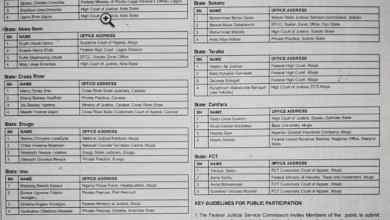Kano Sharia Court Of Appeal Approves Hausa For Legal Proceedings, English No Longer Mandatory

The Kano State Sharia Court of Appeal has officially announced that legal proceedings can now be conducted in Hausa, making English optional. This new directive was issued in a circular by Alh. Abubakar Haruna Khalil, Esq., the Chief Registrar of the Sharia Court of Appeal in Kano.
In the circular, No. 2 of 2024, dated 17th September 2024, and addressed to all Honorable Kadis, Directors, Judges, Lawyers, and the general public, the court emphasized that litigants and their legal representatives are now free to file and argue their cases in either Hausa or English, depending on their preference.
The circular outlined key guidelines for this language policy:
1. Language Consistency: Once a case is initiated in either Hausa or English, all proceedings must continue in that language until the conclusion of the case.
2. No Switching: Parties cannot switch between languages during the course of the legal proceedings once a language is chosen.
3. Records of Proceedings: Until further notice, lower courts will continue transmitting records in Hausa to the Sharia Court of Appeal, and there is no requirement for translated English versions.
The circular highlighted that full cooperation and compliance with these new language rules would be appreciated.

This development is expected to make legal proceedings more accessible for Hausa-speaking litigants, ensuring that more individuals can engage with the judicial system in their native language. The decision reflects the court’s commitment to inclusivity and enhancing public access to justice.
To join THE METRO LAWYER social media platforms, please click on the following:
WhatsApp Channel:Join whatsapp
TELEGRAM: Join Telegram
FACEBOOK Join Facebook
TWITTER Join Twitter
INSTAGRAM: Join Instagram
For sponsored posts, adverts and articles, please send emails to info@themetrolawyer.com.ng or metrolawyerng@gmail.com or call 08034518185/08033240447.
DISCLAIMER:
The views/opinions expressed in this publication are those of the authors and do not purport to represent the views/opinions of The Metro Lawyer (TML), its affiliates or any of its staff.







